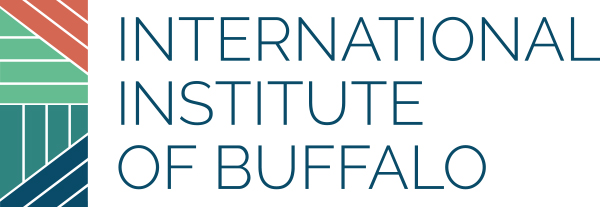Buffalo, NY, October 29, 2020 – Yesterday, the Trump administration announced that the refugee resettlement ceiling will be set at 15,000 for Fiscal Year (FY) 2021. This is the lowest number since the U.S. resettlement program was established nearly 40 years ago.
While the resettlement number continues to dwindle here in the United States, the number of refugees worldwide grows daily. There are currently over 79.5 million people who are displaced, 26 million of whom are refugees. Since the start of the resettlement program, over 3 million people have been granted the opportunity to rebuild their lives here in the United States. With the U.S. resettlement program turning its back on the world’s most vulnerable, tens of thousands of people in dire circumstances have lost the hope of ever building a safe future for their children.
“The Administration’s historically low numbers of planned refugee admissions for the coming year are unsettling and will continue to prove unfair for our neighbors across the world who hope to come to America for a better life,” said Deacon Steve Schumer, Catholic Charities President and Chief Executive Officer. “Our country was founded on welcoming the persecuted, yet it now turns it back on these very individuals — those who are forced to flee their homeland to avoid persecution, violence and even death. Our own community, which has been enriched exponentially in recent decades because of our ability to welcome refugees, will continue to feel the negative impact of these current policies.”
“We believe in humane and welcoming immigration policies for refugees, immigrants, and asylum seekers,” added Dr. Myron Glick, Founder and Chief Executive Officer of Jericho Road Community Health Center. “We are in favor of significantly raising the country’s refugee resettlement cap and making the process of seeking asylum easier for those who are desperately fleeing violence and persecution. America must welcome the stranger.”
The Trump administration has reduced the annual ceiling from 110,000 (in the last year of the Obama Administration), to 30,000 in 2019 and 18,000 in 2020. These cuts continue the Administration’s break with the longstanding tradition of bi-partisan support for refugee resettlement in the United States.
“It comes as no surprise that our president has announced an all-time low refugee admissions ceiling of 15,000, as this administration has shown its cruelty time and time again, with over 100 anti-immigrant policy changes over the past four years,” states Karen Andolina Scott, Executive Director of Journey’s End Refugee Services. “Despite the crisis fatigue we all feel, our common humanity demands that we continue to care about and advocate alongside our refugee brothers and sisters. Even during a global pandemic, our nation has the resources to support a robust U.S. Refugee Admissions Program (USRAP), including extensive security and health screenings. We will continue to fight to save the vital USRAP program and serve our WNY community, guided by the lessons 2020 has forced us to better understand – our individual responsibilities to one another, and our collective roles in dismantling racist and ethnocentric systems.”
This sentiment is echoed by Molly S. Carr, PhD, Chief Executive Officer of Jewish Family Service. “The US Refugee Admissions Program continues to be denigrated and destroyed and the 2021 all-time low admissions ceiling of 15,000 reflects a lack of compassion for our fellow man and a misguided understanding of the complexities of global dynamics. As resettlement agencies, we are faced with the challenge to help Western New York’s nearly 15,000 resettled refugees understand why they will continue to be separated from loved ones languishing overseas. These unnecessary and restrictive policies turn the nation’s back on refugees and the humanitarian traditions that have made our country great and do not reflect our values as a community in Western New York.”
Refugees and immigrants are a critical part of Buffalo’s past, present and future. New York State and Buffalo play a critical role in U.S. refugee resettlement: New York resettles the 3rd largest number of refugees in the country, and Buffalo resettles the largest number in the state. Funding for agencies that assist refugees is linked to the number of newly-arriving refugees. Cuts to Refugee Resettlement result in direct financial losses for agencies that resettle and assist refugees.
Eva Hassett, Executive Director of the International Institute of Buffalo adds “Think about this: 15,000 people is the population of the village of Kenmore. That is the total number of refugees the Administration will permit to enter the entire United States next year. We know that across the state, and especially in Buffalo, refugees have stabilized cities and made large contributions to our economy and communities and that the foreign-born are critical to stemming population loss across Erie and Niagara counties. Without the foreign-born our regional population decline would be twice as high as it is today. And immigrants are not just making up an increasing share of the population in urban settings. Data shows that it is the suburbs – places like Amherst, Lackawanna, Lewiston, and Wheatfield – that would be hit the hardest if the flow of foreign-born newcomers is further restricted. Refugees make our region economically stronger and culturally richer. Employers find good employees. K-12 schools, and colleges and universities, find excellent students. Refugees and immigrants are entrepreneurs and have started a significant number of businesses of all sizes. Neighborhoods are revitalized and vibrant. Buffalo, the City of Good Neighbors, has enormous capacity to help welcome and help refugees. We are ready, willing and able, and we do not want to stop.”
WNYRAC agencies call on the community to show their support for refugees and the foreign-born in our communities. Check in on your foreign-born neighbors, support an immigrant-owned business, consider volunteering or donating to organizations like the WNYRAC member agencies who help make Buffalo a warm and welcoming home for refugees.
